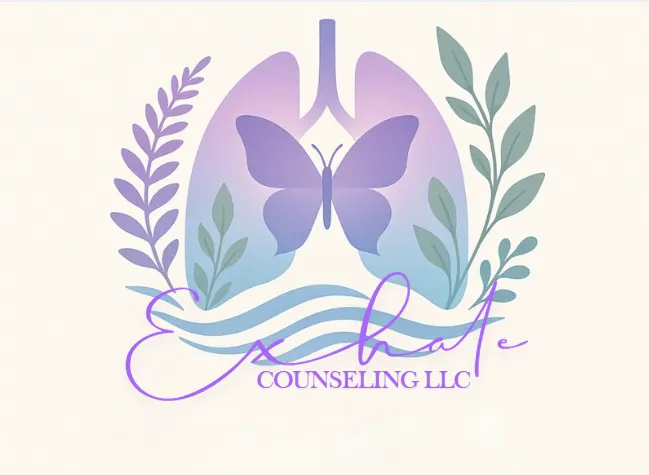Blog
Encouragement and insights for the journey ahead.
By Emily Miller
M.A. (Marriage & Family Therapy), LAC

When Counting Sheep Doesn't Cut It
When Counting Sheep Doesn’t Cut It: How to Actually Sleep Better
Simple, sustainable sleep strategies for tired humans
Honestly, sleep should be the easiest thing in the world.
But for so many of us, it’s the thing we struggle with most.
You lie down to rest… and your brain clocks in for its night shift.
You’re tired but wired. Or you fall asleep only to wake up at 3 a.m. for no reason at all.
Sometimes the problem is getting to sleep. Other times, it’s staying there.
If you’re exhausted but still can’t sleep well, you’re not alone.
Your nervous system might just be overprotective, overstimulated, or under-supported.
The good news is that sleep can get better. Let’s talk about how.
Why Sleep Gets Disrupted (Even When You're Exhausted)
Your body wants to sleep. But sleep is vulnerable, which means your brain will only allow it if it feels safe enough.
Things that block that feeling of safety:
Chronic stress or anxiety
Doomscrolling or overstimulation before bed
Irregular sleep routines
Depression, trauma, hormonal changes
Unprocessed emotions or racing thoughts
Your body isn’t trying to sabotage you, it’s just stuck in “alert mode.” The trick is learning how to guide it gently into “rest mode.”
How to Sleep Better (Without Overhauling Your Whole Life)
1️) Power Down, Don’t Pass Out
Think of sleep like landing a plane instead of crashing one.
You need a wind-down routine that signals to your body: “It’s safe to rest now.”
Try:
Dimming the lights an hour before bed
Switching from screens to something sensory (reading, stretching, journaling, white noise)
Drinking a warm, non-caffeinated drink
Taking a warm shower to lower your core temp and trigger sleepiness
You’re not “doing it wrong” if it takes time. A calm brain isn’t a 5-minute craft.
2️) Create a Cozy Sleep Nest
Your bedroom should feel like a sleep invitation, not a stress station.
Ask yourself:
Is it too hot or too cold?
Is there light sneaking in?
Can I add weight (like a weighted blanket) or soothing textures?
Can I remove clutter or distractions that make my brain stay “on”?
Make it feel like a safe haven. Doctor’s tend to recommend a cool, dark, and calm space for best sleep.
3️) Practice Brain Off-Ramping
If your mind races the second your head hits the pillow, try giving it a place to land before bed.
Try:
A brain dump journal: write down anything you're thinking about. No editing, just release it.
A to-do list for tomorrow so you don’t keep mentally “checking on it”
A worry box: mentally put your stress in a “container” for the night and promise to come back to it (if needed) in the morning
Your thoughts may still try to visit you, but they don’t get to move in.
4️) Stick to Gentle Routines (Not Rigid Rules)
Sleep likes rhythm, not perfection.
Try going to bed and waking up at the same time every day— even on weekends —as often as possible.
But don’t stress if it’s not perfect. One bad night doesn’t undo your progress.
You’re aiming for consistency, not control.
5️) Use Rest as a Bridge (Not a Battle)
If you can’t fall asleep, or you wake up in the middle of the night, don’t fight it.
Instead, ask:
Can I let my body rest even if I’m not asleep?
Can I do something soothing that keeps me in “rest mode” (soft music, gentle breathing, relaxing story podcasts)?
Sometimes the pressure to sleep becomes the very thing that blocks it.
Let rest be enough when sleep won’t come.
Bonus Sleep Helpers Worth Exploring
Magnesium supplements (talk to your doctor!)
Guided meditations (try Insight Timer, Calm, Loona, or YouTube)
Aromatherapy (lavender, chamomile, cedarwood)
Progressive muscle relaxation (also referred to as ‘The Jacobson Method’)
Try utilizing an acrostic word. Come up with words relating to each letter of another word (Ex: CALM = cat, cucumber, cactus, etc; alligator, arithmetic, Arkansas, etc.; lemonade, lozenges, lumpy, etc.; marble, marriage, mother, etc.)
Talking to a therapist if intrusive thoughts, trauma, or anxiety are sleep blockers
Takeaway: You Deserve Deep Rest
Sleep isn’t just about feeling rested.
It’s where your body heals, your mind processes, and your soul resets.
If sleep is hard right now, give yourself compassion, not shame.
You don’t need to hustle harder.
You need restoration, peace, and time.
And sleep is possible again, even if it’s been elusive.
One slow night at a time, you can build back your rest.
You are worthy of that.
Start Your Journey Today
Begin your journey towards a happier and more fulfilling life today.
This is a supervised private practice. It is owned and managed by a master’s-level, non-independent licensee under Board-approved clinical supervision pursuant to A.A.C. R4-6-211. The Board approved clinical supervisor of this practice is:
Name: Rachel Sommerfield, LPC, MC, ADHD-CP
Phone: (520)509-5371
Email: [email protected]



Facebook
Instagram
TikTok